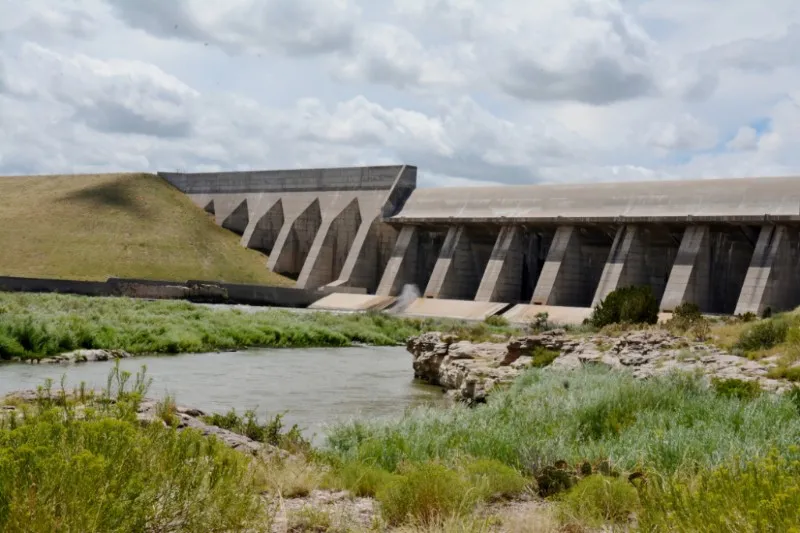
Daily Audio Newscast - November 13, 2025
© AlexLMX - iStock-823000260
Six minutes of news from around the nation.
House Democrats plot to bypass Johnson on shutdown deal; Driven by financial incentives, Kentucky ICE arrests ramp up; IN mental health patients at risk of losing Medicaid; On 'America Recycles Day' turning in leftover paint is easy; Last chance to comment on WA's State Wildlife Action Plan.
TRANSCRIPT
The Public News Service to a newscast, November the 13th, 2025.
I'm Mike Clifford.
House Democrats have landed on a plan of attack to try to salvage what some see as an inadequate deal to end the government shutdown.
It's a discharge petition on extending the Affordable Care Act tax credits.
That from Axios.
They report a discharge petition forces a vote on any piece of legislation if it is signed by 218 House members.
That effectively gives the minority party the power to bypass the majority on bipartisan bills.
Axios notes Democrats have 214 members in the House, meaning four House GOP members would have to sign on, even if they get all their members to do so.
Meantime, Immigration and Customs Enforcement agents arrested nearly 1300 people in Kentucky in the first half of this year.
That's a nearly 40 percent increase compared to last year.
Local law enforcement agencies have entered into contracts with the Department of Homeland Security, known as 287G Agreements, and in some cases are working to meet quotas, explains Ashley Spaulding with the Kentucky Center for Economic Policy.
The efforts to arrest people are becoming more aggressive.
So we're you know, we're going to see more Kentuckians be arrested for immigration reasons.
Earlier this year, the Department of Homeland Security rescinded rules that prevented ICE from arresting non-citizens in places like churches, schools and hospitals.
Experts say that move increased arrest of people who have no criminal history.
According to the Transactional Records Access Clearinghouse, more than 70 percent of detained immigrants nationwide had no criminal conviction.
This is Nadia Ramlagan for Kentucky News Connection.
And beginning in 2027, many people covered by Medicaid will need to meet new work reporting requirements in order to get or retain their coverage.
Experts say those living with mental health conditions could be especially at risk.
According to the National Alliance on Mental Illness, more than 130,000 Hoosiers already do not receive needed mental health care due to cost and they are more than twice as likely to be forced to use out-of-network providers for mental health care than for primary health care, which makes it harder to find care due to higher out of pocket costs.
Deborah Steinberg with the Legal Action Center says there are still reporting exemptions for people with disabling mental health conditions.
How can we get more people diagnosed?
You know, one of the things would be to increase access to universal screening, making sure there are more opportunities for people to get screened for a mental health condition.
The new law will require that people prove they are working or volunteering 80 hours a month in order to maintain their Medicaid coverage.
One study from 2019 found Indiana residents untreated mental illnesses were associated with more than four billion dollars in annual societal costs.
I'm Terry Dee reporting.
This is Public News Service.
This Saturday is America Recycles Day and the nonprofit PaintCare is making it free and easy to get rid of the leftover paint in your garage or shed.
According to the product Stewardship Institute, 10 percent of U.S. house paint purchased each year, about 80 million gallons, goes unused.
Rather than throw it out, Californians can bring it to one of more than 80 drop-off sites around the state, many in hardware or paint stores.
Terry Marsman is California Program Manager for Paint Care.
Recycling your leftover paint is easy and convenient.
If you need to visit a drop-off site near you, please visit our website at paintcare.org. 99 percent of California residents live within 15 miles of a drop-off site.
So there's likely one close to your home.
Many of the drop-off sites are available seven days a week, year-round.
I'm Suzanne Potter.
And in the aftermath of Hurricane Helene, churches in western North Carolina became critical lifelines.
Their impact continues today.
The devastation from Helene is still affecting the region, but in the initial days after the storm, needs were acute.
Although the surrounding Ashe County was hit hard, Western Jefferson United Methodist Church emerged relatively unscathed and was able to set up the day after the hurricane hit with hot meals and a reliable place for power and running water.
The church, like many others in the region, became a hub for accepting and distributing supplies.
Pastor Blake Smarr says immediately after the hurricane it was a safe place to process the shock of the storm and the church still holds Thursday dinners where people of all different backgrounds gather to talk about Helene's impact.
It's times like this and in moments like these where we realize we were always tied together in some way and it's important to acknowledge that and to name that.
Smarr says his church also contracted with the county and made 400 bag lunches per day for a week and a half to help people in the community.
While more than a year has passed since the storm, Smarr and others in the region are planning for recovery efforts that are expected to last for years.
I'm Eric Tegethoff reporting.
Finally, Washington State's Wildlife Action Plan is being updated.
Residents have until this Sunday to share their thoughts on species or habitats they want to see prioritized.
The State Wildlife Action Plan serves as a blueprint for the state's conservation efforts and gets updated every 10 years.
Andrea Wolf with Conservation Northwest says just like other projects the government undertakes, it is important for the public to make their voices heard.
If you support things that are happening or funding that is going to be going to different projects or species or areas that is definitely welcome and then also any criticism.
So everyone comes at it with different expertise and knowledge.
Wolf says, unfortunately, many wild areas of the state are in need of attention and highlights the Colville National Forest in Northeast Washington, where her organization has been focused on reintroducing the Canada links and people can read the plan and submit comments through the WDFW website.
I'm Isabel Charlay.
This is Mike Clifford for Public News Service.
Member and listener supported.
Find your trust indicators at publicnewsservice.org.

















